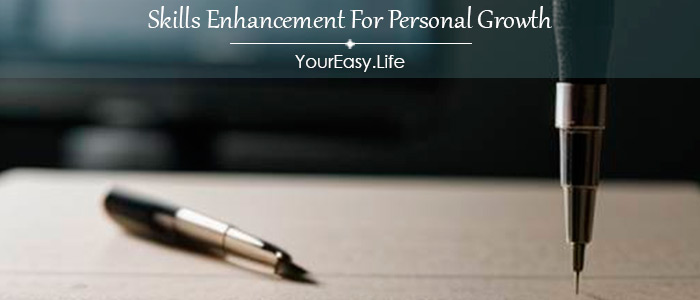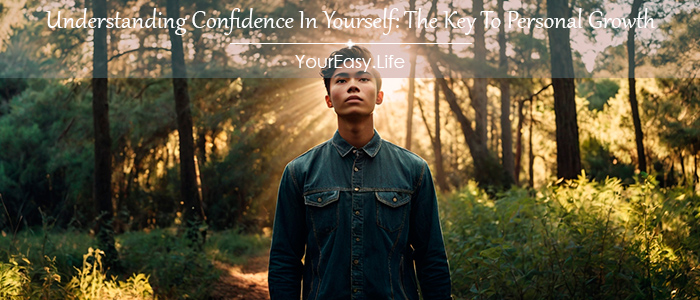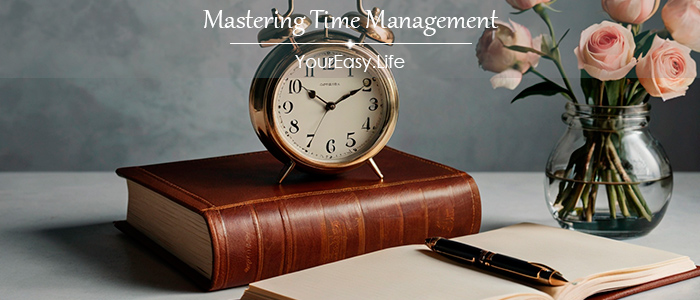Personal growth is your journey to becoming the best version of yourself. It’s an ongoing process of self-improvement, achieving goals, and enhancing skills that make you more competent and confident. Whether you want to develop your abilities, advance in your career, or simply become a better person, understanding these areas is crucial. In this article, we’ll explore the key elements of personal growth, career development, and skills enhancement, offering practical tips and motivation for achieving success.
Table Of Contents
Have You Ever Felt Stuck Or Unsure About Your Next Steps In Life?
Many of us face internal conflicts between wanting to change our lives and lacking the energy or motivation to take specific actions. This often stems from psychological factors like the fear of failure, lack of self-confidence, or the habit of procrastination. Personal growth enables you to overcome these barriers, set goals, and achieve them.

The Importance Of Self-Development For Personal Growth
At the heart of personal growth lies self-development, which involves understanding your strengths and weaknesses, setting personal goals, and achieving them. Let’s dive into the key aspects of self-development:
Goal Setting
Goal setting is the process of defining specific, measurable, achievable, relevant, and time-bound objectives (goals) that you want to achieve. Goals help you focus on what is important, provide clear direction for actions, motivate you, and maintain your interest in the process itself. Moreover, they allow you to see the concrete results of your efforts, which gives you confidence in your strengths and capabilities.
To ensure your goals are achievable, follow one important rule: clearly formulate them using the SMART method. For example, instead of setting a vague goal like “become better,” specify it as “I want to read 12 self-development books in a year by reading one book a month.”
Working With Internal Resistance
Doubts and fears can hinder your development. If you fear failure, think about past experiences where you overcame difficulties and succeeded. Remember how you felt confident in your abilities, this can help you see that failures are just steps toward success.
Habits And Discipline
Create habits that will support your growth. For instance, morning rituals like meditation or journaling can help you start your day with a positive mindset.
Emotional Intelligence And Personal Growth
Developing emotional intelligence is an essential part of self-development and personal growth, as it helps improve communication skills, self-control, and adaptability. Emotional intelligence enables better understanding of your emotions and the emotions of others, enhancing your ability to interact with others, which is crucial for building healthy relationships and effective communication. High emotional intelligence contributes to career success by improving leadership skills, teamwork, and conflict management. If you feel that your emotional intelligence is low, start with a simple exercise: daily record your emotions and analyze what triggered them, for example.
Self-Esteem And Self-Respect
Developing healthy self-esteem and self-respect is important for personal growth. If you often doubt your abilities, remind yourself of your achievements and strengths. For example, Keeping a success journal can help boost your self-esteem.
Mindfulness For Personal Growth
Mindfulness is the practice of being fully immersed in the present moment, fully aware of your thoughts, emotions, and bodily sensations without trying to change or judge them. It is the ability to perceive reality as it is, without distortion and evaluation. Mindfulness is often practiced in meditation and psychotherapy to improve emotional state and overall well-being.
It helps reduce stress levels by teaching you to focus on the present moment rather than worrying about the future or regretting the past. Practicing mindfulness helps better understand and regulate your emotions, improves focus, and increases productivity. Research shows that regular mindfulness practice can positively impact physical health by lowering blood pressure and improving sleep.
Mindfulness practices include: meditation, mindful breathing, eating, walking, and practicing gratitude. If you are just starting with mindfulness practice, start small, be patient, do not rush, begin with 5-10 minutes a day – developing mindfulness takes time and consistency, give yourself time to develop this useful habit. If your mind starts to wander, do not judge yourself, just gently bring your attention back to the present moment. To help yourself start with mindfulness practice, use apps and online resources.
Personal Growth Through Hobbies And Interests
Engaging in hobbies promotes personal growth, the development of new skills, improved cognitive functions, increased self-esteem, reduced stress, and expanded social connections. Such hobbies develop patience and perseverance, help find inner harmony, better understand and express yourself, enrich your life, and make you a more versatile and balanced person. Self-expression through creativity, sports, or any other hobby contributes to personal growth and self-improvement.
Hobbies often serve as a means to relieve stress and improve mood, as activities that bring pleasure help distract from daily problems and relax. Regular participation in favorite activities helps reduce stress levels and improve overall emotional state.
Mastering new skills through hobbies requires time and effort, thus the constant striving for perfection and overcoming difficulties develop patience and perseverance. These qualities are useful not only in hobbies but also in professional activities and personal life.
Many hobbies involve participation in clubs, groups, or teams, which helps expand your social circle and establish new social connections that are important for personal growth, as they provide opportunities to share experiences, receive support, and inspiration from like-minded individuals.
If you do not have a hobby, think about what you enjoyed in childhood, or try something new that you have always wanted to try, for example.
Career Development And Personal Growth
Career development is about more than just climbing the corporate ladder. It involves acquiring new skills, building professional connections, and adapting to the changing job market. Here are some important aspects of career growth:
Professional Development
Make it a habit to regularly update your knowledge and skills. If you’re pressed for time, try online learning, which you can do at your own pace.
Professional Connections
Creating and maintaining professional connections can open new opportunities. If you’re an introvert and find this challenging, start with small steps like joining online groups related to your interests.
Leadership and Management
Developing leadership skills is crucial, regardless of your current position. If you doubt your leadership abilities, begin with small tasks like managing minor projects or teams.

Skills Enhancement For Personal Growth
Enhancing your skills helps you become better, more efficient, and successful in various areas of your life. New knowledge and skills can make you a more sought-after specialist, opening up more opportunities for career growth and increasing your earning potential. They allow you to be more flexible and adaptable, which is especially important in a rapidly changing professional environment. This concerns both technological changes and new methods of work and approaches to problem-solving.
Skills development helps you perform tasks more efficiently and with higher quality. For example, improving time management skills allows you to plan your day better and achieve set goals with less time and effort, which increases your productivity and enables you to achieve more in less time.
Self-Organization Skills
The ability to effectively plan your tasks and time helps increase productivity. If you feel that you cannot cope with tasks, try methods like The Pomodoro Technique or maintaining a to-do list.
Adaptive Skills
Flexibility and the ability to quickly adapt to new conditions are important in any field or life situation. If you find it difficult to adapt, start small: make small changes to your daily routine and observe your reactions.
Self-Learning Skills
Self-learning allows you to constantly develop and adapt to new requirements. If you do not know where to start, choose one topic that interests you and study it for 15 minutes a day.
Problem-Solving Skills
The ability to effectively solve problems is important in both personal and professional life. If you encounter difficulties in problem-solving, try breaking them down into smaller tasks and solving them sequentially.
Communication Skills
Effective communication is essential for interacting successfully with colleagues, clients, friends, and family. If communicating is hard for you, start by practicing active listening and clearly expressing your thoughts.
Creativity and Innovation
Creativity helps you find unconventional solutions and innovative approaches. If you consider yourself not a creative person, try developing this quality through hobbies, such as drawing or writing stories.
Supporting personal growth requires attention and effort, but the results are worth it. Setting clear goals, working with internal objections, creating beneficial habits, professional development, and skills improvement are all key elements of a full and successful life. If you feel you cannot cope with this alone, do not hesitate to seek support from friends, mentors, or professionals.
Your path to success begins here, on YourEasy.Life, where you will find valuable resources and advice for improving your life. Remember that taking care of yourself is an important step towards a happy and fulfilling life. We understand that doubts and obstacles may arise on the path to change, but we are here to support you every step of the way.
Share your experiences of applying personal growth methods in our social media groups and subscribe to our newsletter for more helpful articles.
You are not alone – we are with you at every step to improve your life!





